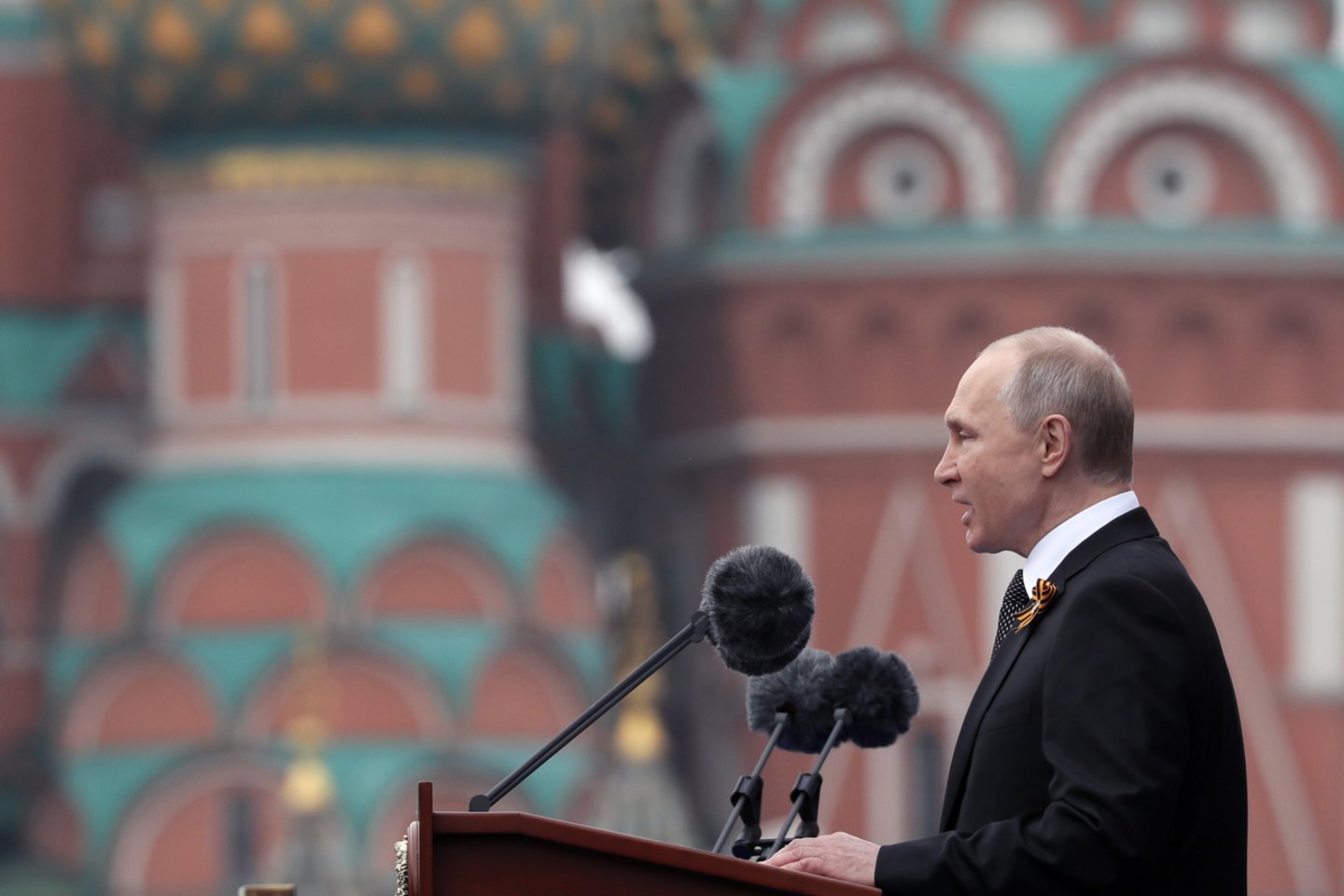A poll commissioned by Elta and Baltic Research asked people to assess the likelihood that Russia could attack Lithuania shortly. Respondents were asked to give a specific number on a scale of 100 per cent, where zero means that Russia will not attack Lithuania, and 100 per cent means that such a scenario is inevitable in the next few years.
The survey revealed that almost a tenth (9%) of the population does not think that Russia could attack Lithuania in the next few years. They said the probability of this happening is zero.
Slightly more than a third (34%) of the respondents think that war is possible in Lithuania, albeit small. This share of the population rated the likelihood of a Russian attack between 1 and 30 per cent.
In turn, about a quarter of the respondents believe that the likelihood of military aggression in Lithuania is moderate (between 31 and 50 per cent).
14% of citizens say that a Russian attack in the near future is very real, and the probability is more than 50%. Finally, only one per cent believe that war in Lithuania is inevitable.
Another fifth (18%) had no opinion or did not answer this question.
Residents of large cities consider Russian military aggression unlikely
According to the Baltic Research poll, Lithuanian men (49%), metropolitan residents (48%) and respondents with higher education (51%) consider the likelihood of a Russian military aggression to be low. These groups were more likely to say that Russia could attack Lithuania between 1% and 30%, or zero in general. In total, 43% of the population was of this opinion.
On the other hand, people over 50, rural residents, and citizens with average monthly family incomes were more likely to rate the likelihood of aggression as medium (31–50%).
In contrast, the likelihood that Russia will attack NATO member Lithuania shortly was more frequently mentioned by residents of smaller towns.
Women, young people under 30, young people in education, Russians and Poles were more likely to have no opinion or to be reluctant to answer this question.
Politicians' disagreements influence the assessment of Russian threats
Commenting on the survey results, Rasa Ališauskienė, Director of Baltic Research, says that the distribution of opinion shows that the shock of Russia's war in Ukraine has passed. Now, the sociologist notes, both the Russian threat and the likelihood of military aggression by the Kremlin are seen in the context of ongoing political debates in Lithuania.
„People now look at a lot of things through the prism of elections, especially during election season, when politicians speak with different voices. As a result, people eventually begin to look not so much at what is being said but also at what kind of politician is speaking,“ the sociologist told Elta.
Therefore, she said, in some cases, the public can assess threats to national security not only based on geopolitical arithmetic.
„If you don't like the speaker, his opinion seems unjustified, exaggerated or rejected. This factor is significant. People would have more confidence if experts or analysts spoke regarding security issues. Politicians do not add credibility, even when they get it right“, she said.
Debate on defence funding could raise questions for the public in assessing the Russian threat
Politicians' discussions on defence funding also influence the assessment of the Russian threat, admits Ališauskienė. With most politicians claiming that an agreement on defence funding can be reached after the parliamentary elections, the population is naturally hesitant about the seriousness of the messages sent by experts and some government representatives about the deteriorating geopolitical situation.
„Politicians now agree that defence needs to be strengthened, but that is all they agree on. Whether now or tomorrow, by what means... These issues are leading to a racket“, noted the Director of Baltic Research.
Supporters of different parties may view the Russian threat differently
On the other hand, Ališauskienė notes that opinions on a country's level of security or the same threats posed by Russia may also depend on a person's party preferences. In other words, people who support the Social Democrats or the Conservatives will assess the threats to Lithuania in the same way as the leaders of these parties talk about them.
„It can now be observed that those more inclined to support the ruling party are more likely to emphasise the threat and see it as greater than opposition voters. But this is also related to the speakers. Naturally, if the speaker is a ruling party speaker, he/she is not an authority for the opposition supporters. Other motives come into play – that it is a threat before the elections to raise money,“ said Ališauskienė.
The survey took place from 22 February to 5 March 2024. 1021 Lithuanian residents (aged 18 and over) were interviewed at 115 sampling points. The results reflect the views of the Lithuanian population aged 18 and over by gender, age and type of settlement. The margin of error of the results does not exceed 3.1 percentage points.

